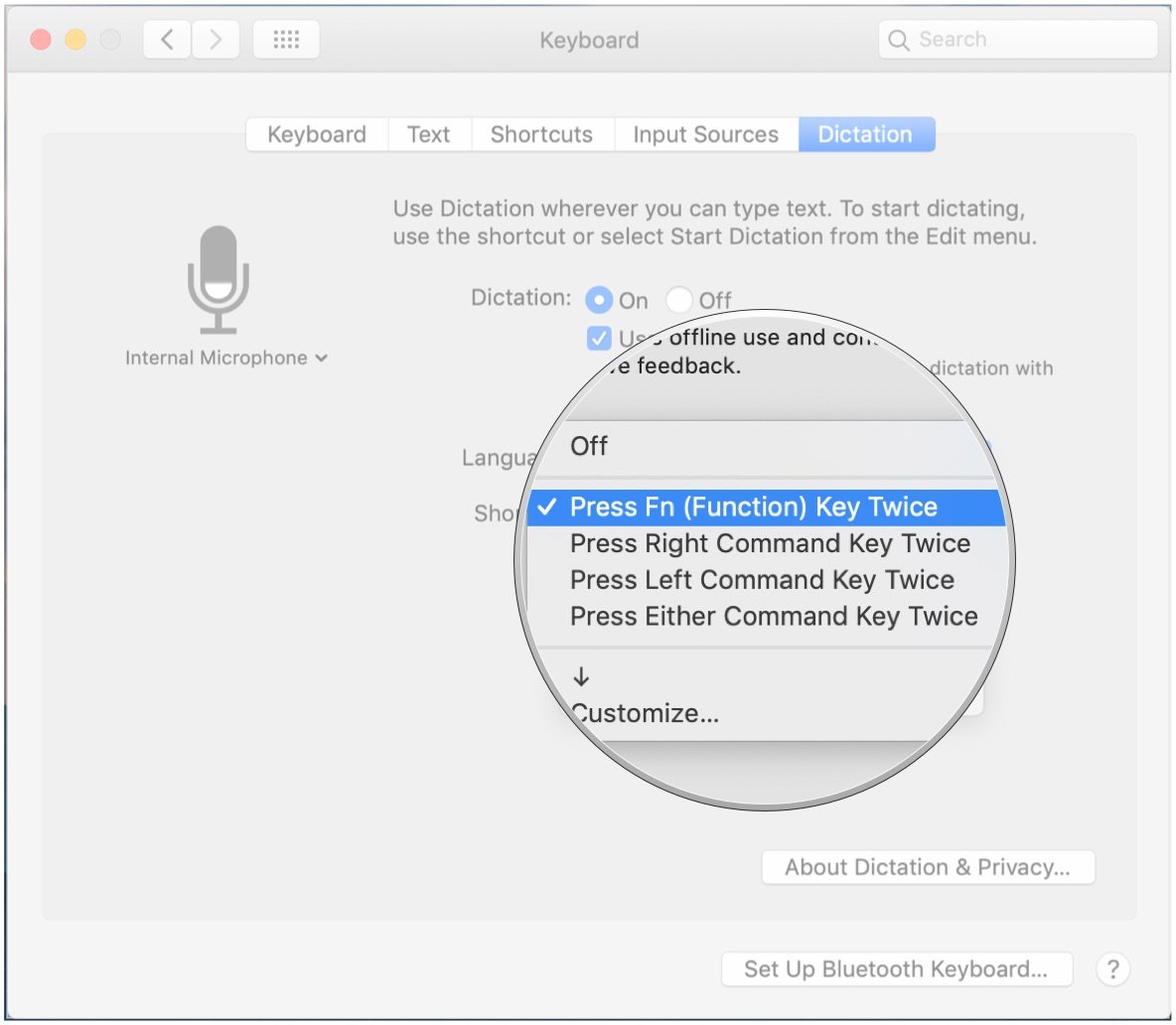

- The pop-up menu below the microphone icon in the Dictation pane of Keyboard preferences shows which device your Mac is currently using to listen. On your Mac, choose Apple menu System Preferences, click Keyboard, then click Dictation. Open the Dictation pane for me. Click the pop-up menu below the microphone icon, then choose the microphone you want to use for keyboard dictation.
- Use Mouse Keys to control your cursor with a numeric keypad. And on Mac, use the movement of your head in place of a mouse button with Pointer Control.
You can choose from icon, list, column, or Cover Flow view. In Cover Flow view, the browser is split horizontally into two sections. The top section is a graphical view of each item, such as folder icons or a preview of the first page of a document. The bottom section is a list view of the items.
The dictation feature is standard on Mac devices, but you will need to turn it on and set it up before you can start using it. To turn on the dictation feature, use these steps: Navigate to System Preferences by clicking on the small Apple icon at the top left corner of your screen. Click on Keyboard. Click the Dictation tab. I use a speech to text program called Dragon Dictation. I can use it for mouse clicks, but I have to say the word 'mouse click' or 'mouse triple click' which becomes very annoying after a while, I would like to just say click or triple.


To jump, press VO-J. If you’re using VoiceOver gestures, keep a finger on the trackpad and press the Control key.
Icon view: Use the arrow keys to move to the item you want.
List view: To move down the list rows, press VO-Down Arrow. To expand and collapse a folder, press VO-. To move the VoiceOver cursor across a row and hear information about an item, press VO-Right Arrow. Or press VO-R to hear the entire row read at once.
Mac Dictation Commands
Column view: To move down the list until you find the folder or file you want, use the Down Arrow key. To move into subfolders, press the Right Arrow key.
Cover Flow view: To flip through the items in the top section and move automatically through the corresponding list rows in the bottom section, press the Left Arrow or Right Arrow key.
When you find the file or folder you want to open, use the Finder shortcut Command-O or Command-Down Arrow to open it.Mac Dictation Not Working

How Use Mac Dictation For Mouse Click Free
VoiceOver announces when you have selected an alias or a file or folder you don’t have permission to open.